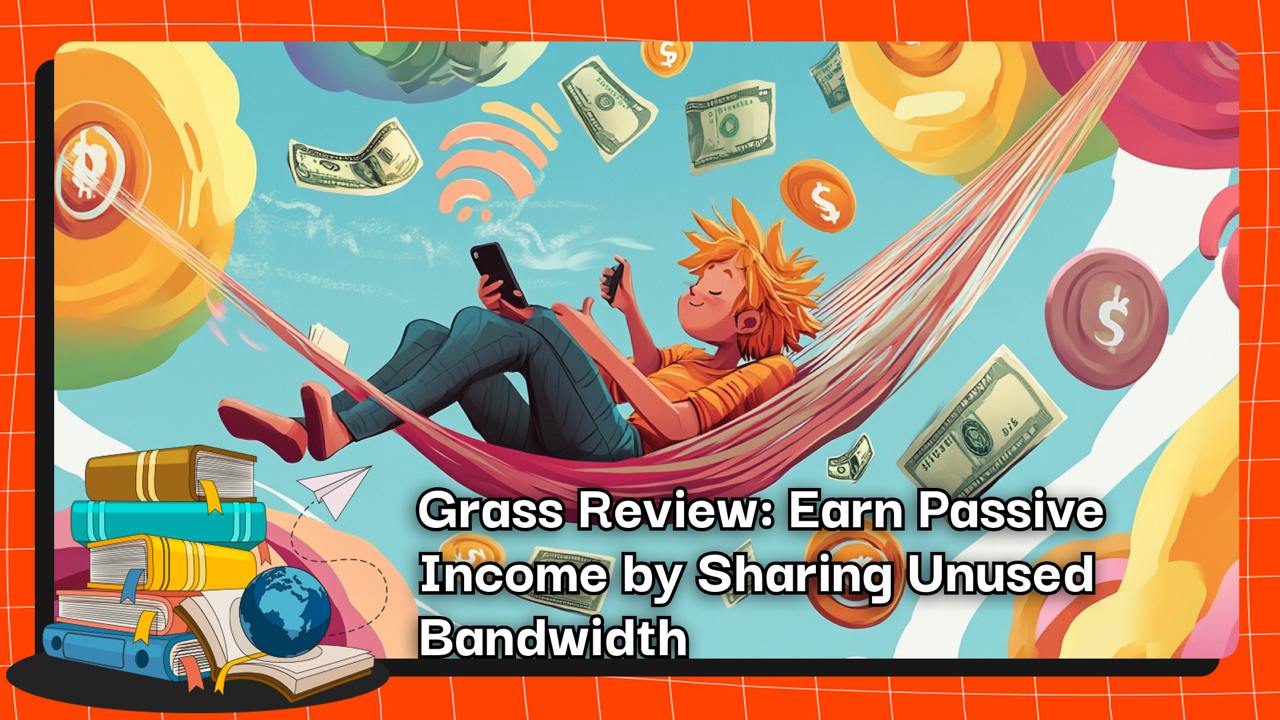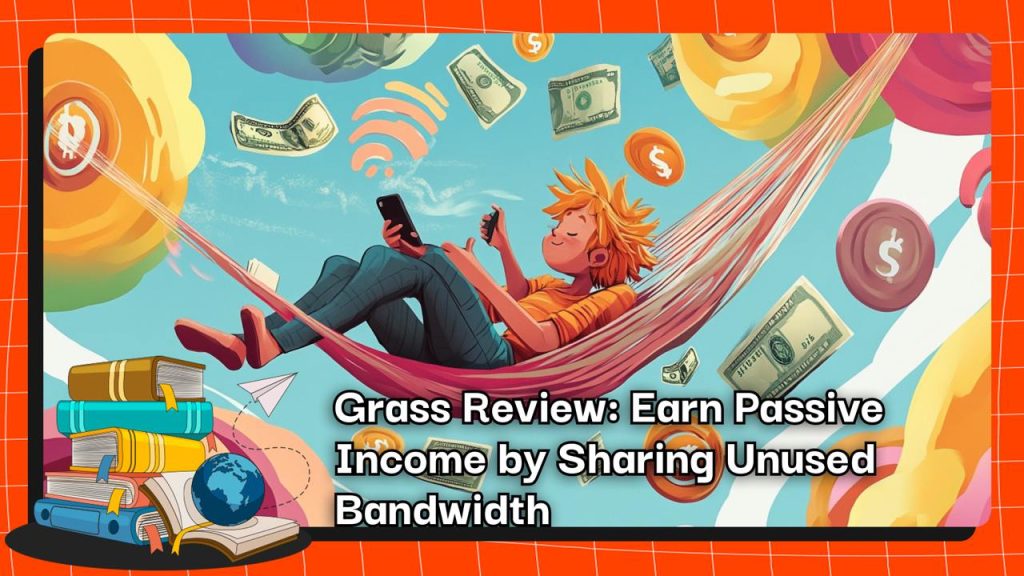





Grass is a decentralized protocol that empowers the idle bandwidth of the internet into an asset. Hence, it enables normal day-to-day web users to passively earn some income by contributing to the Grass’ web-scraping network that sustainably gathers data.
This is mainly because most people pay for access to the internet but rarely use their entire bandwidth; Grass capitalizes on this surplus by connecting it with companies and organizations that need such data for a variety of online services.
Grass also secured approvals from major anti-malware providers, further cementing its commitment to the highest industry standards for keeping users’ privacy and security in the best shape possible. This will go a long way in ensuring that participants are at peace when contributing their internet bandwidth to the network.
All that the users need to do is click to join Grass and begin earning rewards. Sharing extra bandwidth gives these businesses the resources they need to enhance online services. Grass works by connecting this extra bandwidth with verified businesses to make sure both the company and the user benefit.
Behind Grass is Wynd Network, a development team that realized the global abundance of unused internet bandwidth. Grass was developed to begin making good use of this available resource. Businesses, especially AI-related ones, purchase bandwidth from the platform, taking meticulous measures to ensure it is not abused in any form. Only a very small portion of up to 0.3%-of the user’s bandwidth is ever used, and never at the cost of the user’s experience on the internet.
Among other ways, users can get started by adding to Google the Grass Extension which will immediately have them up and running in passive income. Sharing bandwidth rewards them with points that later can be converted into the native GRASS token as a form of reward. The more they contribute, the more they earn.
Grass will be a leading data layer for AI under development, comprising two infrastructural parts:
Grass Points are the rewards system in the Grass Ecosystem: a means through which users can get points, be it through their contributions and/or referrals, thereby being converted into native tokens that Grass offers, or any other future forms of reward. Here are ways through which users earn Grass Points:
People get rewarded with Grass Points just for keeping their connection up and sharing that extra bandwidth with the network. The more consistent your connection, the greater the accumulation of your points.
Grass offers a multi-level referral program that incentivizes users to bring in new contributors to the network. There are three levels of referral rewards:
Grass also gives some referral bonuses, both for the referrer and the referred. New referrals have a 5,000-point bonus after reaching 100 hours of uptime, while referrers get a 2,500-point bonus once their referral has reached the same threshold.
Grass also has a tiered system wherein, with increasing referrals by the user, a lot more rewards can be unlocked. Their rewards for total points and referrals keep getting higher and better as the users progress through ranks from Iron to Titan.
Grass includes an epoch system whereby point accumulation is timeboxed into monthly cycles such that the user can get a clear picture of the number of points they make every month. The points will not change throughout the beta, but the dashboard visualizes points over time to better track progress.
For now, Grass has not announced detailed tokenomics publicly. Among the rewards users will be able to get in perspective, there will be the GRASS token.
The development team of Grass is heavily undercover. However, the project is backed up by Wynd Network—a decentralized web proxy network. The only known team member is Andrej Radonjic, co-founder of both Wynd Network and Grass. Andrej has done his Master’s in Mathematics and Statistics from York University; he also has a Bachelor’s degree in Engineering Physics from McMaster University.
Grass has raised $4.5 million across several fundraising rounds:
• Pre–Seed: $1 million raised with NoLimit Holding leading and contribution from Eclips, Bigbrain Holdings, and Satori.
• Seed: $3.5 million led by Polychain Capital and Tribe Capital, with participation from Mozaik and Big Brain Holdings.
• Series A: Grass has also raised an undisclosed amount in its Series A round with participation from Polychain Capital, Delphi Digital, and others.
The project has established partnerships with Solana Phone (Saga) to integrate its applications on mobile devices. Additionally, Grass has teamed up with Alignment Lab AI, an AI company specializing in large language models (LLMs), to enhance its data collection capabilities for AI development.
Grass has finally completed the snapshot for its Airdrop #1 program. The community is still awaiting an announcement about its tokenomics and, more importantly, its detailed roadmap that would give a glimpse of what’s in store for this project.
Grass is an exciting project within the DePIN space that allows users to monetize their unused internet bandwidth into passive income. This decentralized physical infrastructure not only grants privacy and security but also makes it one of the promising projects in AI and web scraping, given its partnerships and innovative model.
CoinCu believes in the potential Grass has within the Solana ecosystem, especially since it is focused on DePIN physical infrastructure and sustainable data collection.
You can start by downloading the Grass Extension, creating an account, and sharing your unused bandwidth to earn rewards.
Grass only uses up to 0.3% of your unused bandwidth, ensuring no disruption to your internet speed or service.
Yes, Grass offers a referral program where you can earn points for every user you invite, plus additional bonuses based on their activity.
| DISCLAIMER: The information on this website is provided as general market commentary and does not constitute investment advice. We encourage you to do your own research before investing. |
Discover the best new meme coins with 1000X potential. Explore BTFD Coin, Act I: The…
Discover the best cryptos to join for short-term gains. Explore Qubetics’ presale success, Ethereum’s dominance,…
Discover why Qubetics’ presale, SUI’s fast blockchain, and HNT’s IoT connectivity are some of the…
BTFD Coin, Baby Doge, and Act I are the best new meme coins to buy…
Explore the best cryptos to join for 2025, featuring Qubetics’ presale milestones, Cosmos’ interconnected ecosystem,…
The Antminer S21 Pro tops the Hashrate Index's list of the most competitive Bitcoin mining…
This website uses cookies.